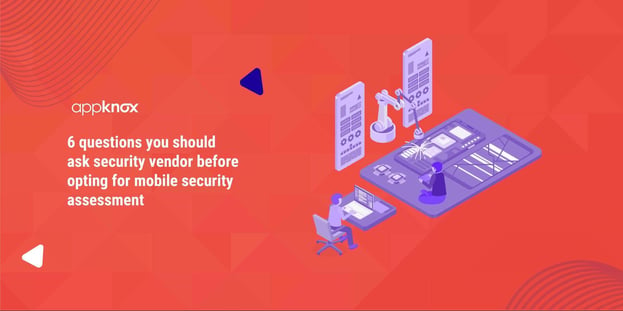
BLOG

BLOG
Companies across industries are moving to the cloud and adopting cybersecurity measures to protect themselves from the onslaught of cyberattacks. But before you opt for a security vendor for mobile security assessment, it’s essential to keep a few things in mind.
Firstly, understand what Managed Service Providers (MSPs) are and how they operate. MSPs are third-party hosts who manage and protect your data in off-site data centers when you move your apps to the cloud. And secondly, it’s crucial to select the right MSP as per your budget. Some MSPs provide overarching services, but others aren’t up to the mark.
Today, when cloud adoption is on the rise, and when people can work from internet-enabled devices at any time and from anywhere, it’s essential to check whom you are trusting your data with.
This article sheds light on the questions you should ask your security testing vendor before opting for mobile security assessment.
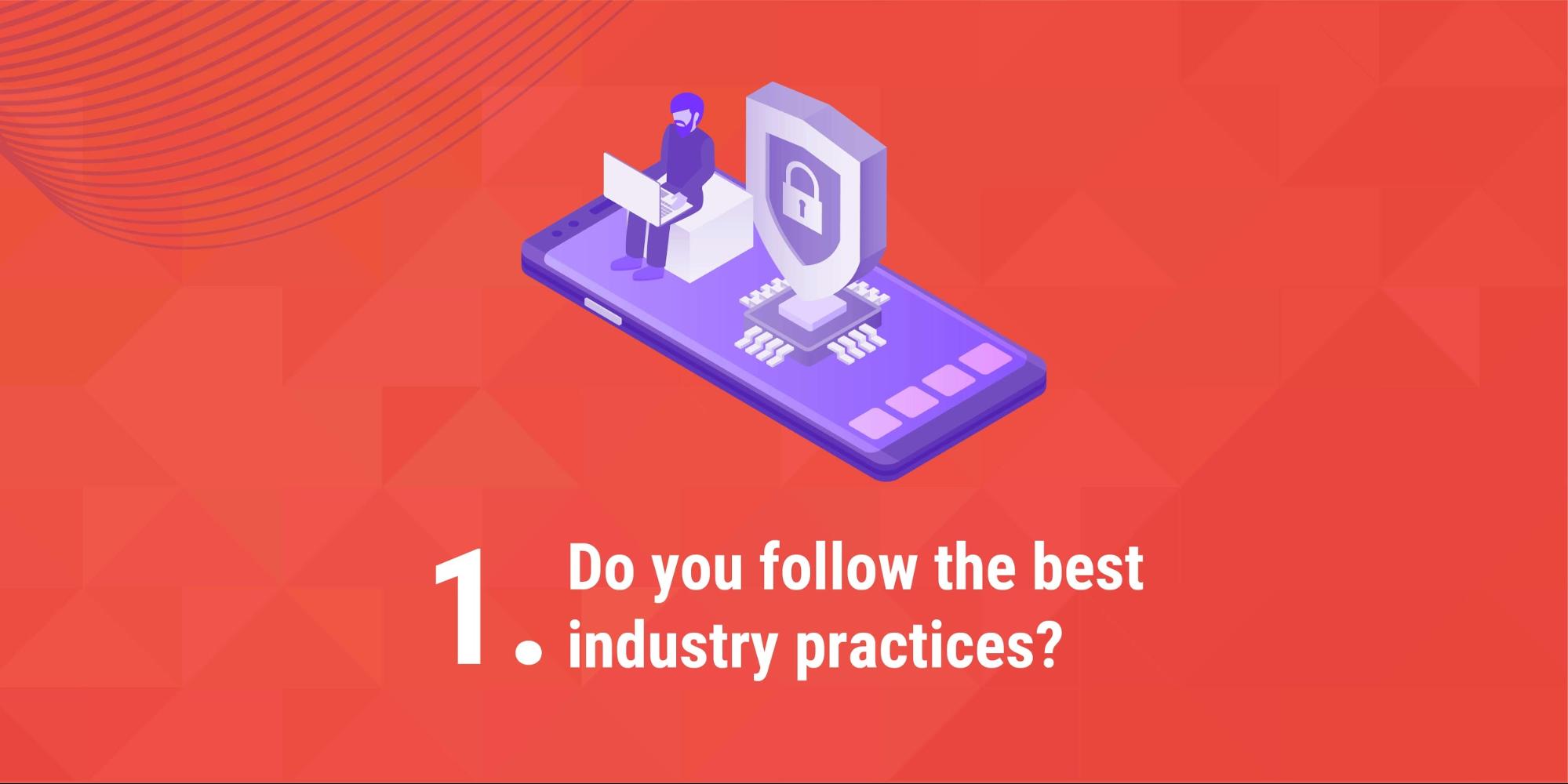
One of the most important questions you should ask your MSP should be whether they adhere to industry-wide practices. An easy way to check this is by ensuring whether the MSP follows the frameworks set by the Data Security Council of India.
Here are a few questions you should keep in mind:
a. Do they provide retina check and fingerprint scanning over the regular password verification?
b. Do they protect against malicious malware?
c. Do they run a 24/7 virus protection check?
d. Do they restrict unauthorized access to business-critical data?
e. Do they defend against reverse-engineering, software tempering, and hijacking attempts?
f. Do they provide adequate cover against malicious third-party servers?
g. Do they fix vulnerabilities in web applications?
h. Do they provide data backups in multiple data centers located in different parts of the world?
i. Do they administer the types of programs allowed to run on your business’ private network and block the rest?
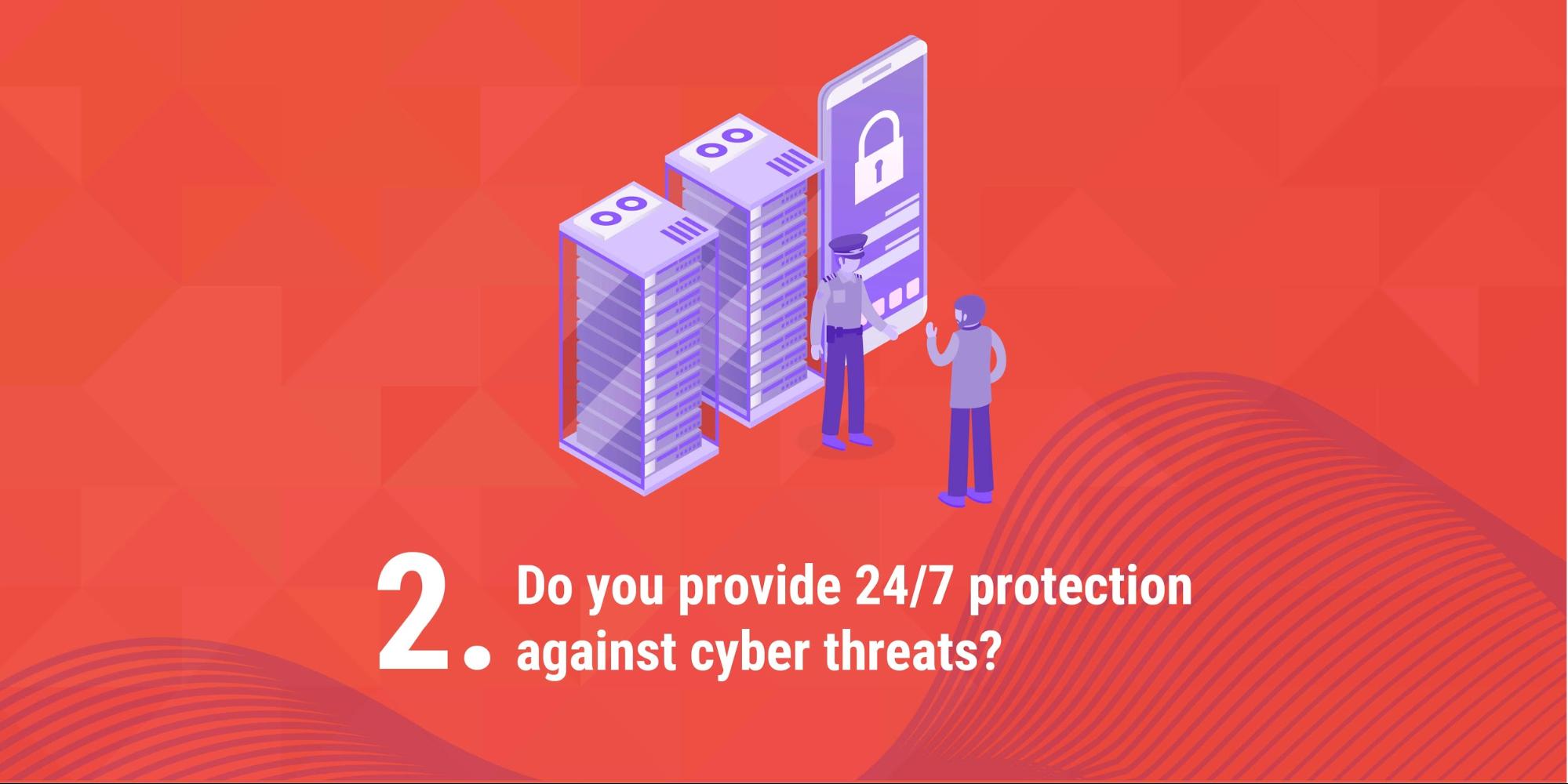
It would be best to determine whether the MSP protects against cybersecurity threats 24 hours a day and 365 days a year. Even a second’s carelessness can cause damage worth millions of dollars.
It would help if you asked the following questions before moving forward:
a. Do they have high-grade firewalls?
b. Do they have advanced algorithms to protect against threats that can bypass traditional security measures?
c. Do they have advanced protocols to scan machines and provide protection against malware?
d. Do they conduct automatic surveillance now and then?
e. Do they check who is accessing the cloud facilities?
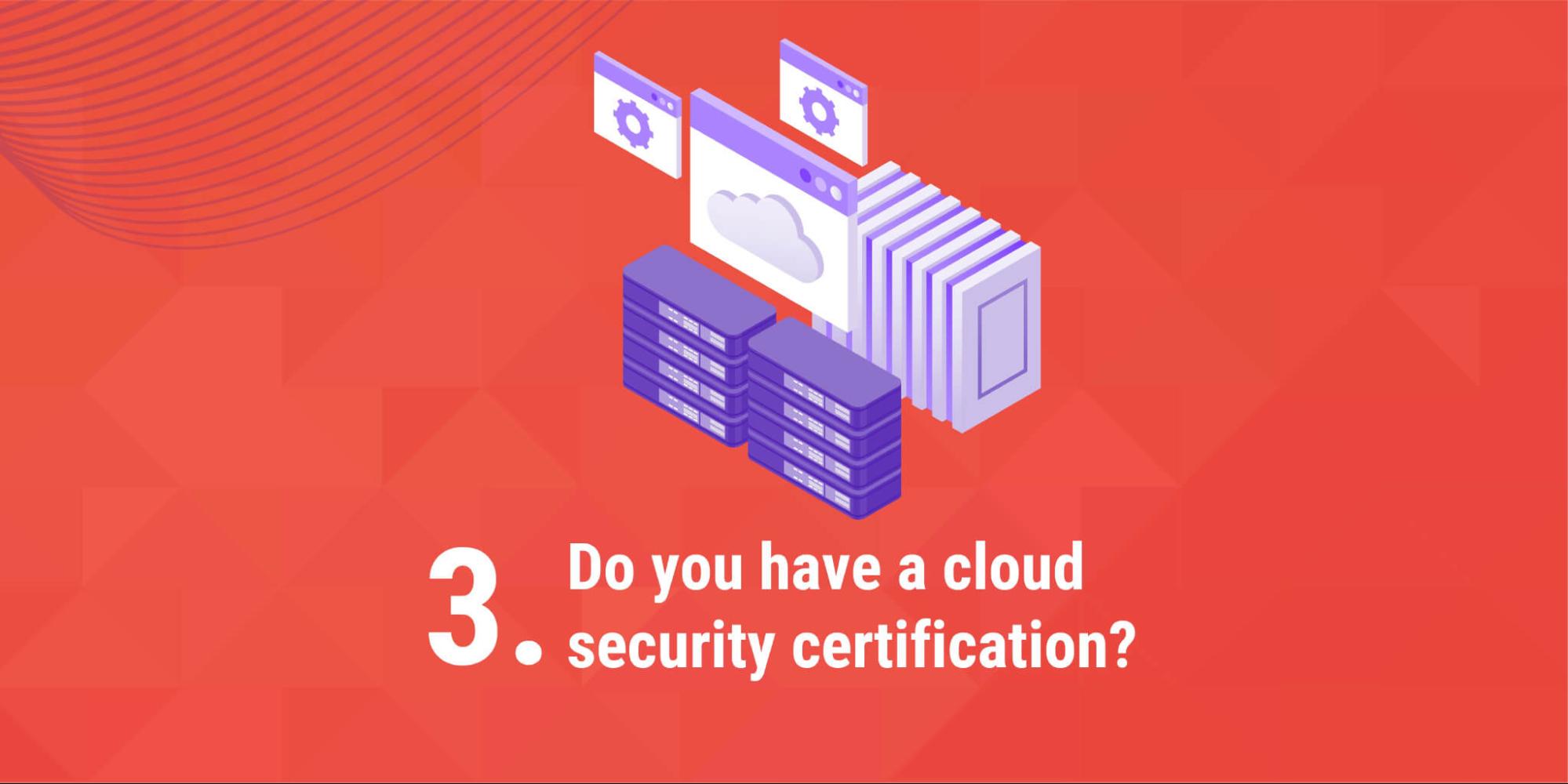
While you are selecting an MSP, keep in mind to check what certifications they have. For example, the DSCI Certified Privacy Lead Assessor - Training and Certification Program speaks volumes about the MSP’s capabilities. It’s also necessary to check their credibility. Ask other players in the industry about the MSP’s support service quality. Also, inspect the effectiveness of the MSP’s end-to-end encryption systems and risk mitigation techniques.
Must Read- Compliance Checks That Businesses Need To Follow
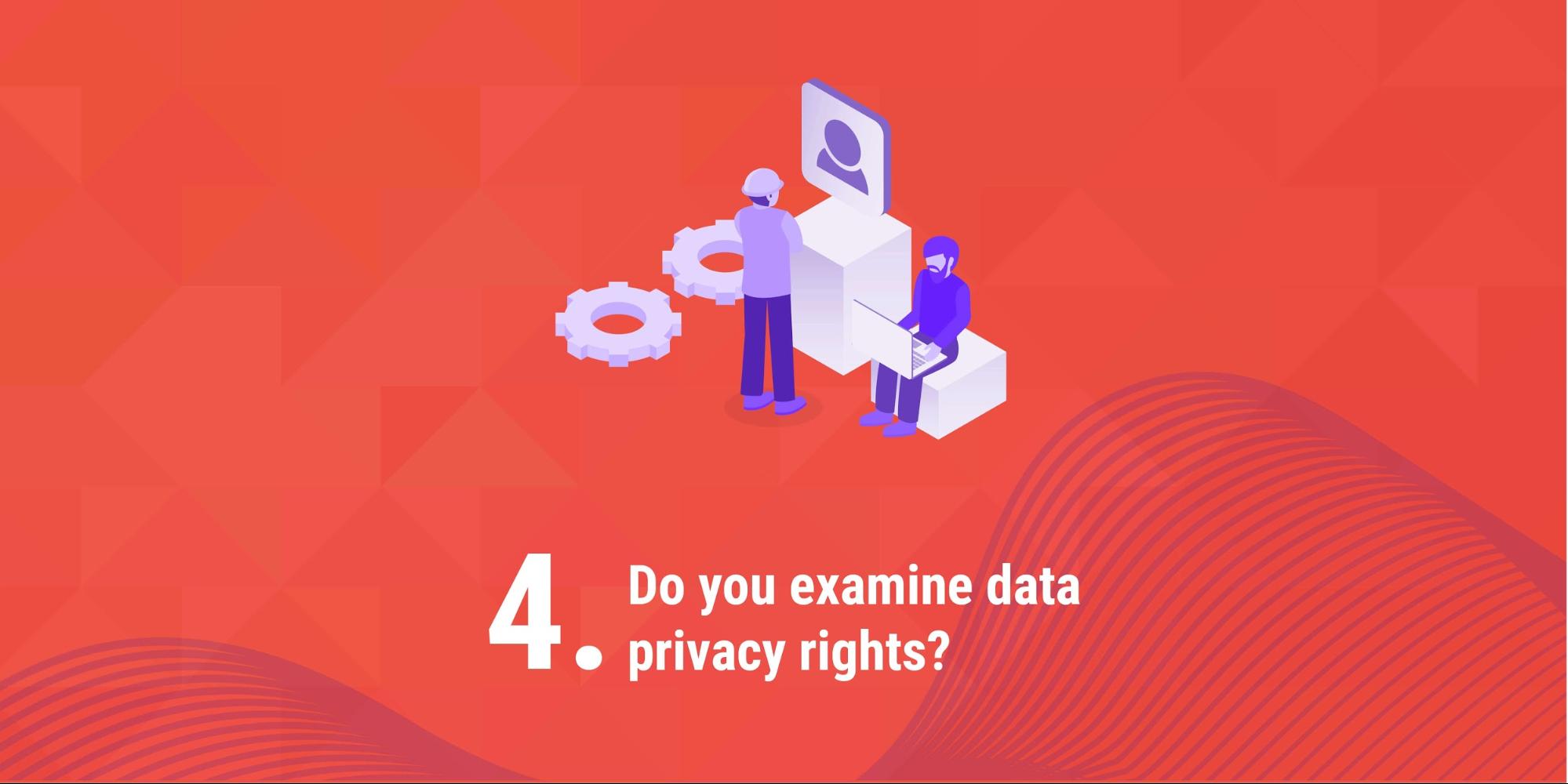
The famous proverb “Data is the new oil” explains the value of data in the present business scenario. Companies that possess data and have the tools to mine valuable information from it are the ones that are ruling the industry. But you can land in serious trouble if your competitor tries to steal your data. Hence, it would be best to ask the MSP what data protection protocols they follow and measure their effectiveness.
You should check their data privacy policies and sign new contracts to ensure that you enjoy more reliable data protection rights. Online signing may be easier if you use eSignature services since they provide audit trails and digital certificates to assure the privacy of signers. Ask them the following questions:
a. Which parties are entitled to view your company’s data?
b. How does the MSP separate the data of various companies?
c. How do they prevent data leakage?
d. What are the viewing rights of support engineers who are authorized to watch over your data?
Go forward with the MSP only if you get satisfactory answers to the questions listed above.
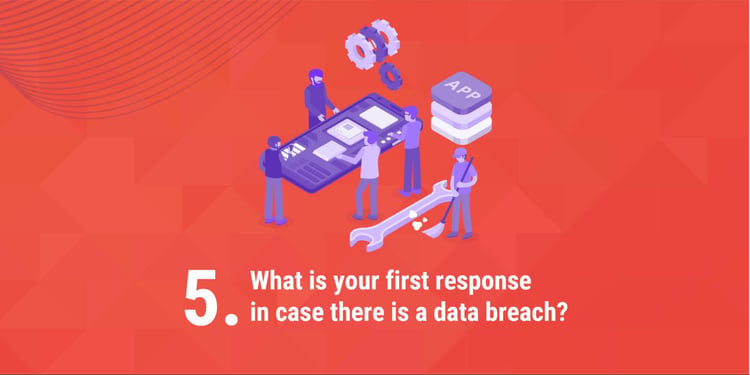
No matter how many measures you take to safeguard your data, there is always a possibility that you might end up losing your data. It would be best if you got a 360-degree perspective of your vendor — what intrusion detection tools they use, their data recovery and backup policies, and the systems they use to secure your data.
Moreover, you should also pay due attention to whether the vendor is surreptitiously passing on your valuable data to a third party. A proactive vendor will always alert you if there is a data breach and suggest ways to work around it.
If you think the vendor doesn't score satisfactorily on the points mentioned above, it will be better to strike them off from the list and move to the next.
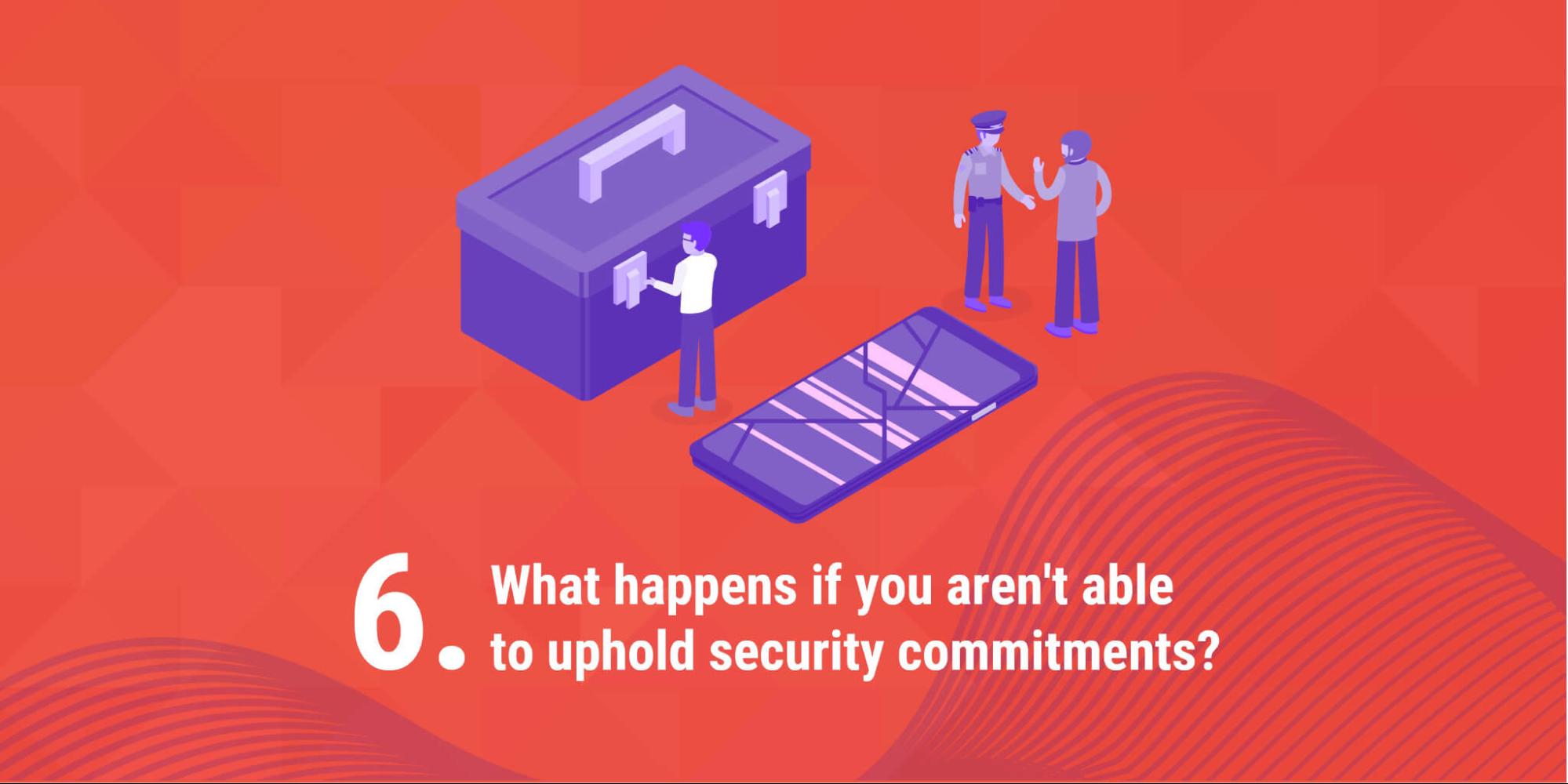
With data-stealing cases increasing rapidly, there is a fair enough chance for you to land into trouble. Multinationals like Adobe, eBay, Equifax have faced data breaches in the past. Research indicates that about 69% of Indian companies are at the risk of a data breach. So it would be too naive for you to imagine that you cannot fall prey to data theft.
Hence, it’s necessary to understand the security obligations before signing the contract with the MSP.
Here are a few questions you should ask:
a. What remediation will the MSP provide if it fails to uphold its security obligations?
b. Will the remediation be in the form of service securities or financial penalties?
c. Are there any transition clauses if you aren’t satisfied with the support service provided by the MSP?
d. Does the contract have clauses that don’t allow you to back out of the relationship?
You might consider striking the MSP from the list if you don’t get satisfactory answers to the above questions.
It’s essential to get a 360-degree outlook of the MSP before signing the final contract. Conduct a thorough analysis of the security vendor to ensure that it provides world-class service. Otherwise, you may land in big trouble and may have to repent later. This article puts forward six essential questions that you must keep in mind before selecting a application security testing vendor to keep your data safe.

Hackers never rest. Neither should your security!
Stay ahead of emerging threats, vulnerabilities, and best practices in mobile app security—delivered straight to your inbox.
![]() Exclusive insights. Zero fluff. Absolute security.
Exclusive insights. Zero fluff. Absolute security.
![]() Join the Appknox Security Insider Newsletter!
Join the Appknox Security Insider Newsletter!
